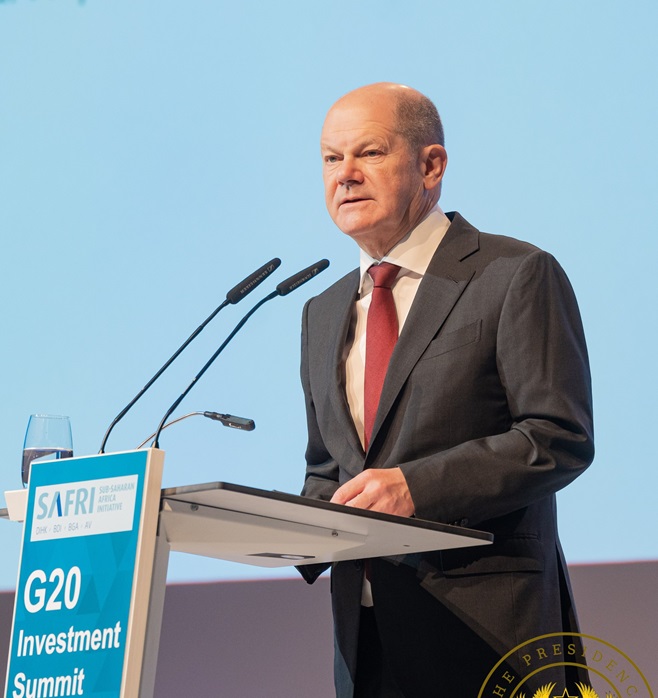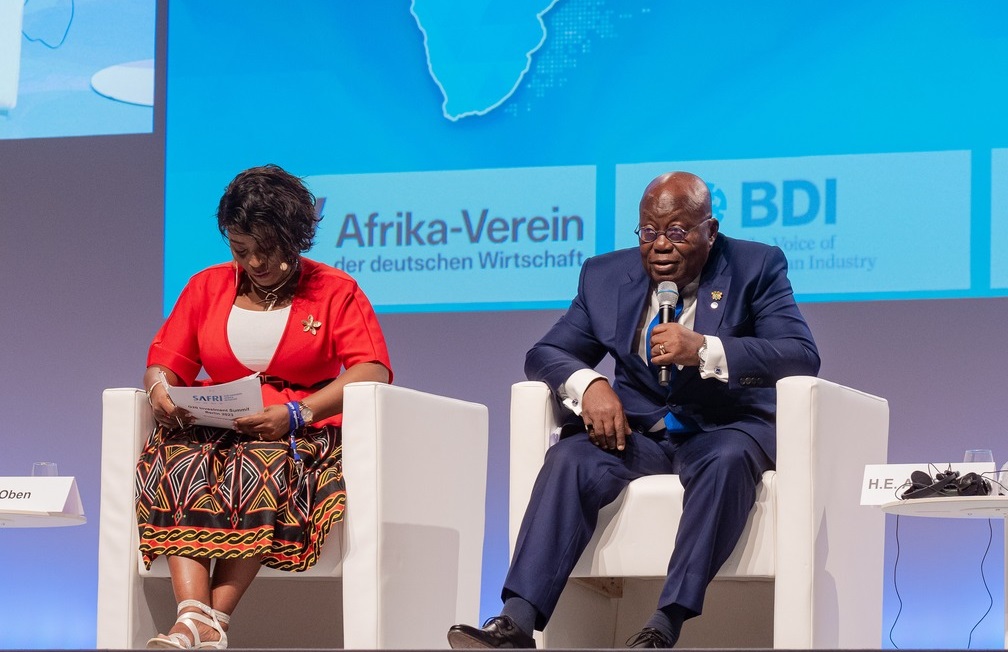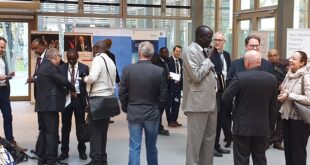Germany is offering itself to African countries as a long-term and reliable economic partner. That is the message of Berlin at the G20 Compact with Africa (CwA) Conference in the German capital city this week.
“Africa is our partner of choice when it comes to intensifying our economic relations and taking the common path to a climate-neutral future,” said Chancellor Olaf Scholz at the summit, attended by some 18 African leaders, aimed to attract increased private investment in Africa and closer partnership between the G20 and African countries.
Germany is especially focusing on the production of climate-friendly energy such as green hydrogen, Scholz made clear in Berlin.

Germany signed a $500m renewable energy and gas deal with Nigeria and pledged to invest €4bn in African green energy projects by 2030 during the summit.
The CwA was initiated during the German G20 presidency in 2017, with the aim of attracting increased private investment from G20 countries in the economies of African member states by making substantial improvements in their macro, business and financing frameworks.
Thirteen African countries now belong to the group of CwA states: Egypt, Ethiopia, Benin, Burkina Faso, Côte d’Ivoire, Ghana, Guinea, the Democratic Republic of Congo, Morocco, Rwanda, Senegal, Togo and Tunisia. Other countries, such as Nigeria which attended the 2023 conference, are interested in joining.
The 2023 CwA summit, hosted by Chancellor Scholz, was designed to present Germany as a reliable and attractive partner for African countries and it’s coming at a time when China and Russia are increasing their investments and geopolitical influence in Africa.
The summit was attended by EU Commission President Ursula von der Leyen, EU Council President Charles Michel, French President Emmanuel Macron and Dutch Prime Minister Mark Rutte as well as Turkish President Recep Tayyip Erdoğan, among other G20 leaders.

The Chancellor emphasised that the Compact partnership is working. “In terms of economic development, the Compact countries are performing above average compared to Africa as a whole.” Foreign direct investment in these countries had increased massively again last year, he added.
The interest of German companies in Africa, with its wealth of raw materials and enormous potential for climate-friendly energy, is immense, said Scholz, adding that his government was facilitating private investment through favourable guarantee conditions. “It is clear that the enormous economic potential can only be realised through large-scale private investment.”
From the point of view of the German government, investing in Africa is no longer just a matter of extracting raw materials, but also of carrying out the first processing step in the continent itself. “This creates jobs and prosperity in these countries and German industry gains reliable suppliers.”
The Chairman of the African Union, Azil Assoumani, and the Chairman of the African Union Commission, Moussa Faki Mahamat, assured that Africa was also open to other partnerships in view of China’s already strong presence. “There is no monopoly. Everyone has their place,” emphasised Assoumani.
Femi Awoniyi
 THE AFRICAN COURIER. Reporting Africa and its Diaspora! The African Courier is an international magazine published in Germany to report on Africa and the Diaspora African experience. The first issue of the bimonthly magazine appeared on the newsstands on 15 February 1998. The African Courier is a communication forum for European-African political, economic and cultural exchanges, and a voice for Africa in Europe.
THE AFRICAN COURIER. Reporting Africa and its Diaspora! The African Courier is an international magazine published in Germany to report on Africa and the Diaspora African experience. The first issue of the bimonthly magazine appeared on the newsstands on 15 February 1998. The African Courier is a communication forum for European-African political, economic and cultural exchanges, and a voice for Africa in Europe.


























